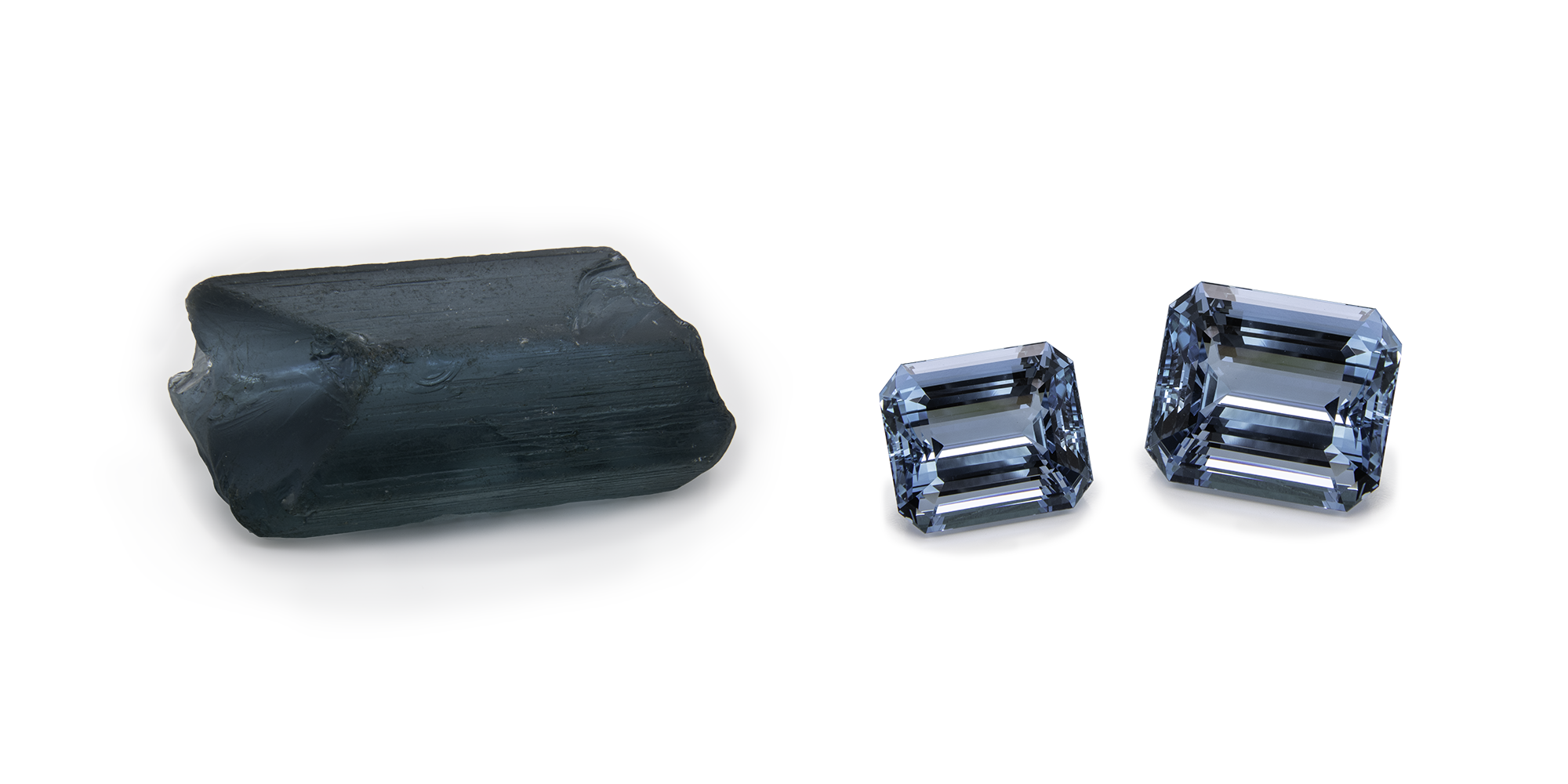GEMSTONES
For the creation of gemstones, our earth needs many millions of years.
For the most part, gemstones are found in regions that are difficult to access. People who are looking for such treasures are often exposed to the greatest dangers and hardships, in the hope of making a profitable discovery.
But if it happens every now and then that nature reveals one of its secrets, we should be aware of what we can hold or carry in our hands. In doing so, we will find out that every stone, present in a piece of jewellery or left as a mineral in its originality, is unique.
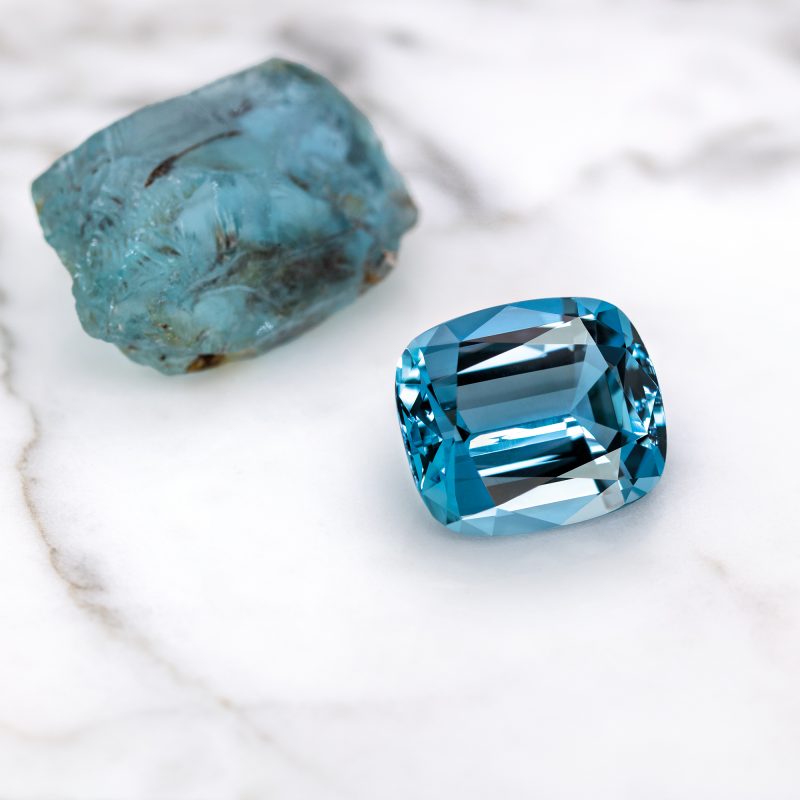
Aquamarine
Santa Maria
We grew up with the aquamarine, our signature gemstone.
The blue variety of the beryl group is distinguished by its high degree of hardness (7.5 to 8) and covers all blues, from glacier blue to deep sea blue. The most precious colouring is the famous, deep blue Santa Maria, which gets its name through the mine of the same name in Ceará, Brazil.


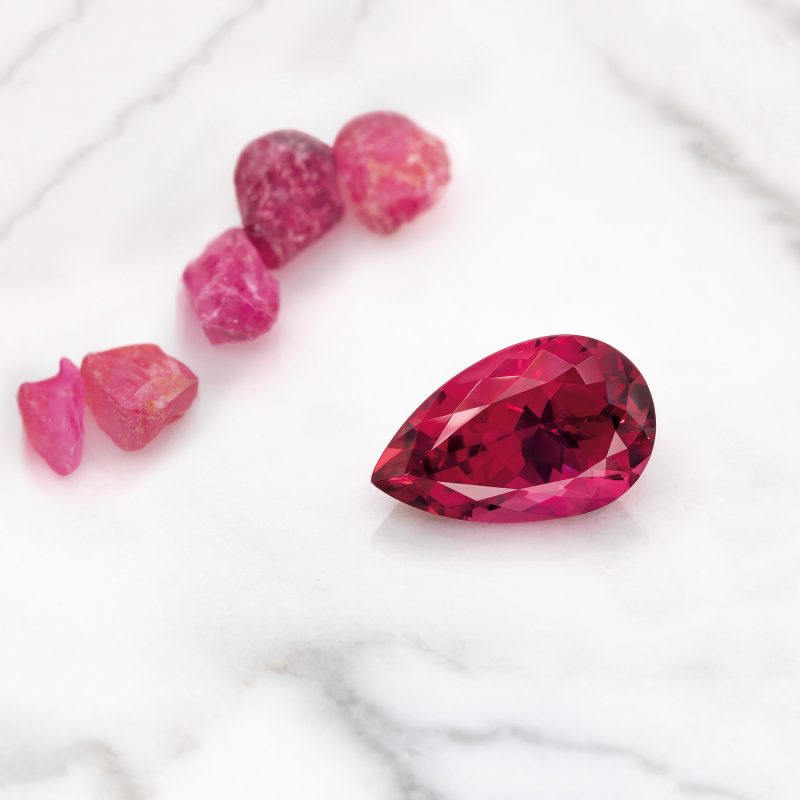
Spinel
Red Spinell · Pink Spinell · Blue Spinell
With a hardness of 8, the spinel is one of the hardest coloured gemstones. It occurs in different colour variants, of which the red spinel is the most valuable.
For a long time, the centre stone of the Imperial State Crown of the United Kingdom was thought to be a ruby. However, this is actually a spinel, which thanks to this finding came into the spotlight.




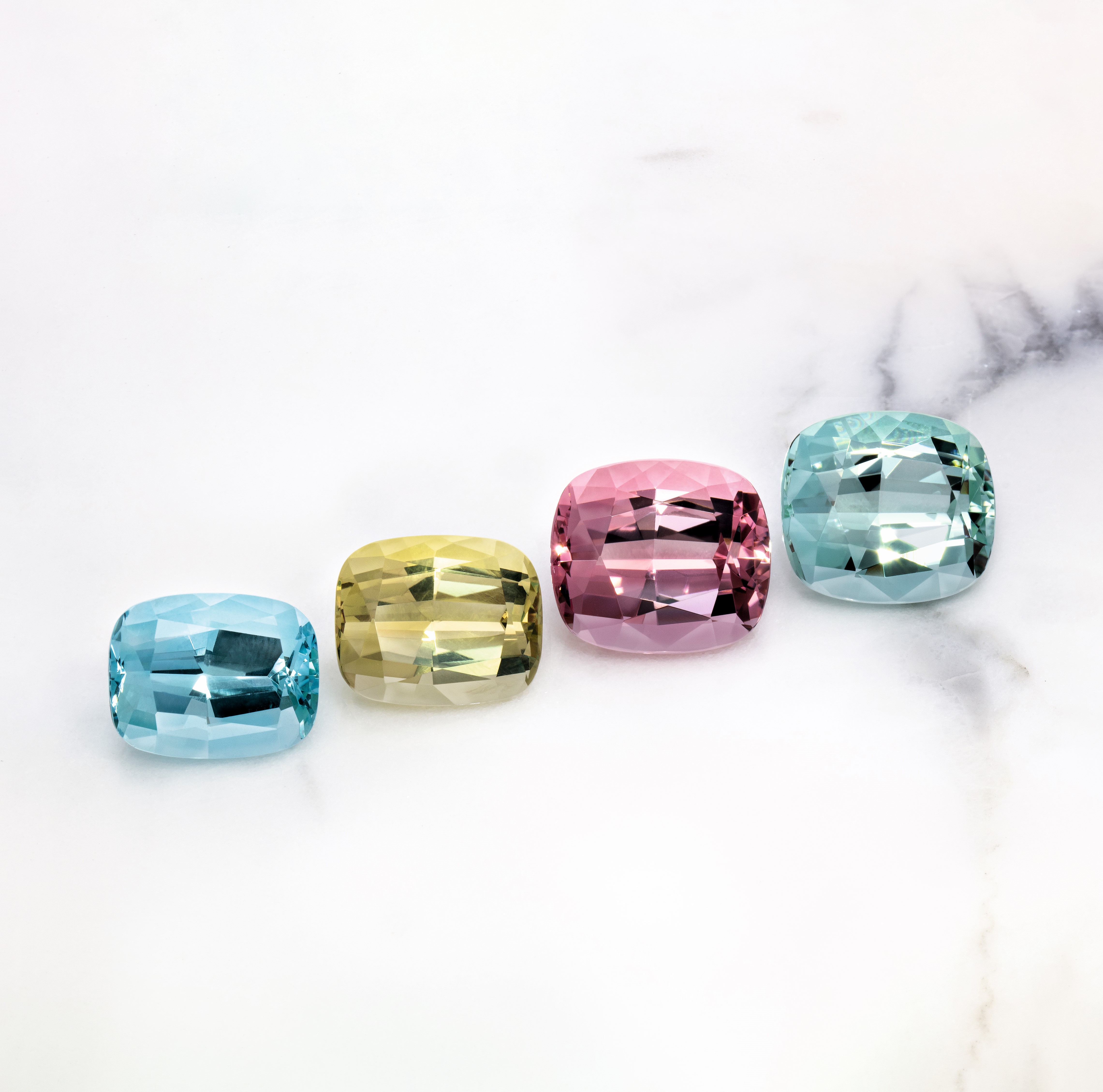
Beryl
Vanadium Beryl · Yellow Beryl · Green Beryl · Red Beryl · Morganite
The beryl, found mainly in Africa and Brazil, occurs in almost all pastel tones.
Among the best-known varieties of the beryl are the green emerald, the yellow gold beryl, the pink morganite and also our signature gemstone, the blue aquamarine.


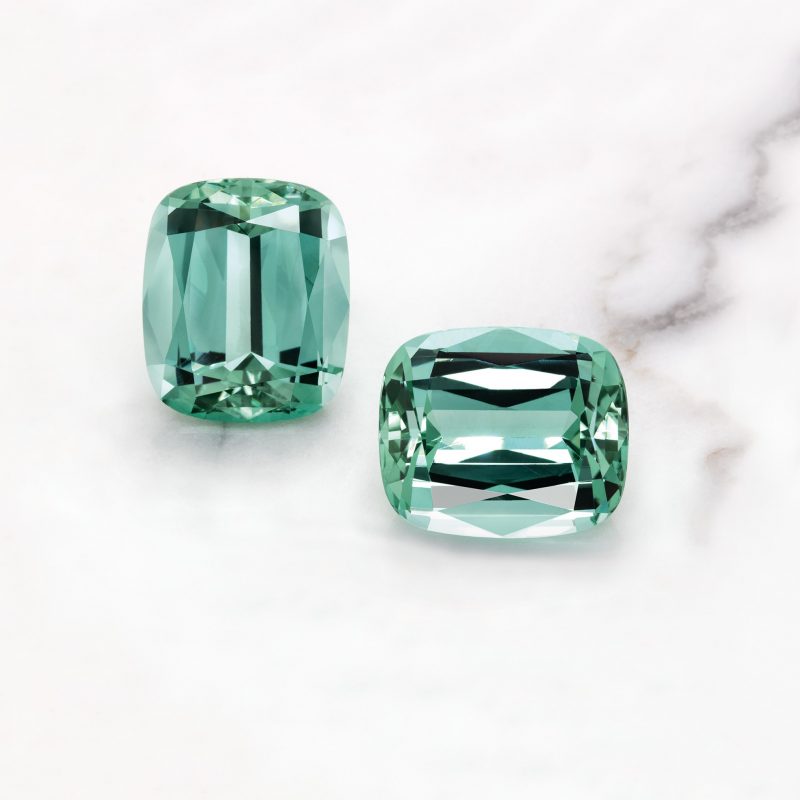
Tourmaline
Paraiba · Rubellite · Mint Green Tourmaline · Green Tourmaline · Pink Tourmaline · Brown Tourmaline · Multicolour Tourmaline · Chromium Tourmaline
The group of tourmaline gemstones is characterised above all by its unique colour diversity.
Tourmalines occur in two – or even three – colour varieties and have a perfectly crystallized triangular shape which makes them very difficult to process. One of the most expensive versions, which has gained importance in recent years, is the Paraiba tourmaline from the Brazilian state of the same name.



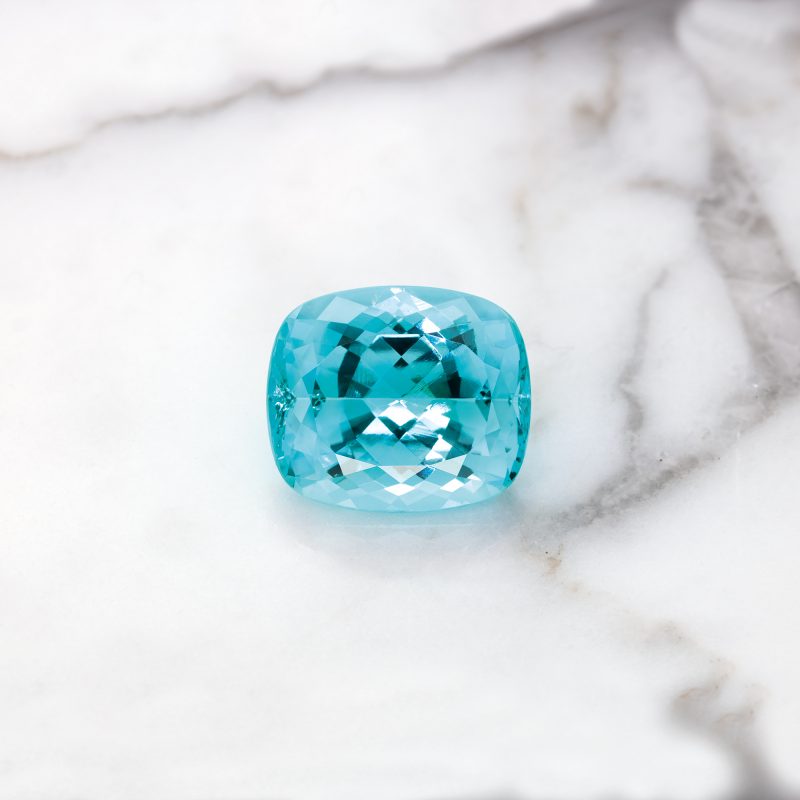
Paraiba Tourmaline
Paraiba Tourmaline · Paraiba Tourmaline
The paraiba is one of the most expensive varieties from the tourmaline family and has gained in value in recent years due to its rarity
It is named after and originates from the state of Brazil of the same name. It owes its intensive colouring from mint green to bright neon blue, which is particularly sought after, to the trace element of copper.



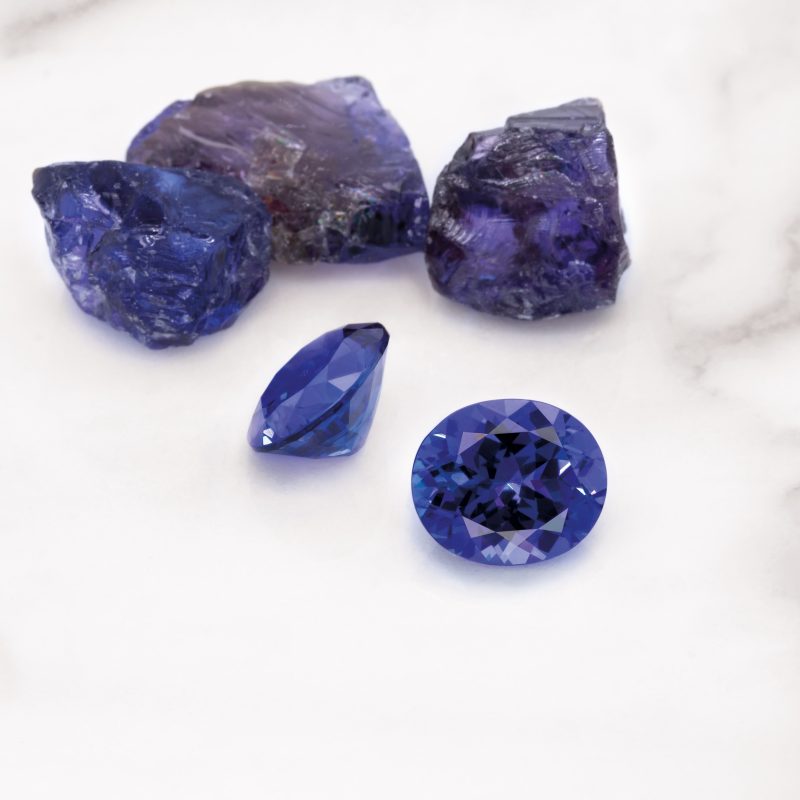
Tanzanite
Tanzania
A handful of gemstone lapidaries from Idar-Oberstein and the surrounding area, including Arnoldi, marketed tanzanite in the late 1960s to the New York jeweller Tiffany’s, which made the stone famous.
The unique, deep-blue tanzanite is only found in Tanzania and is characterised by its trichroism in its natural form.

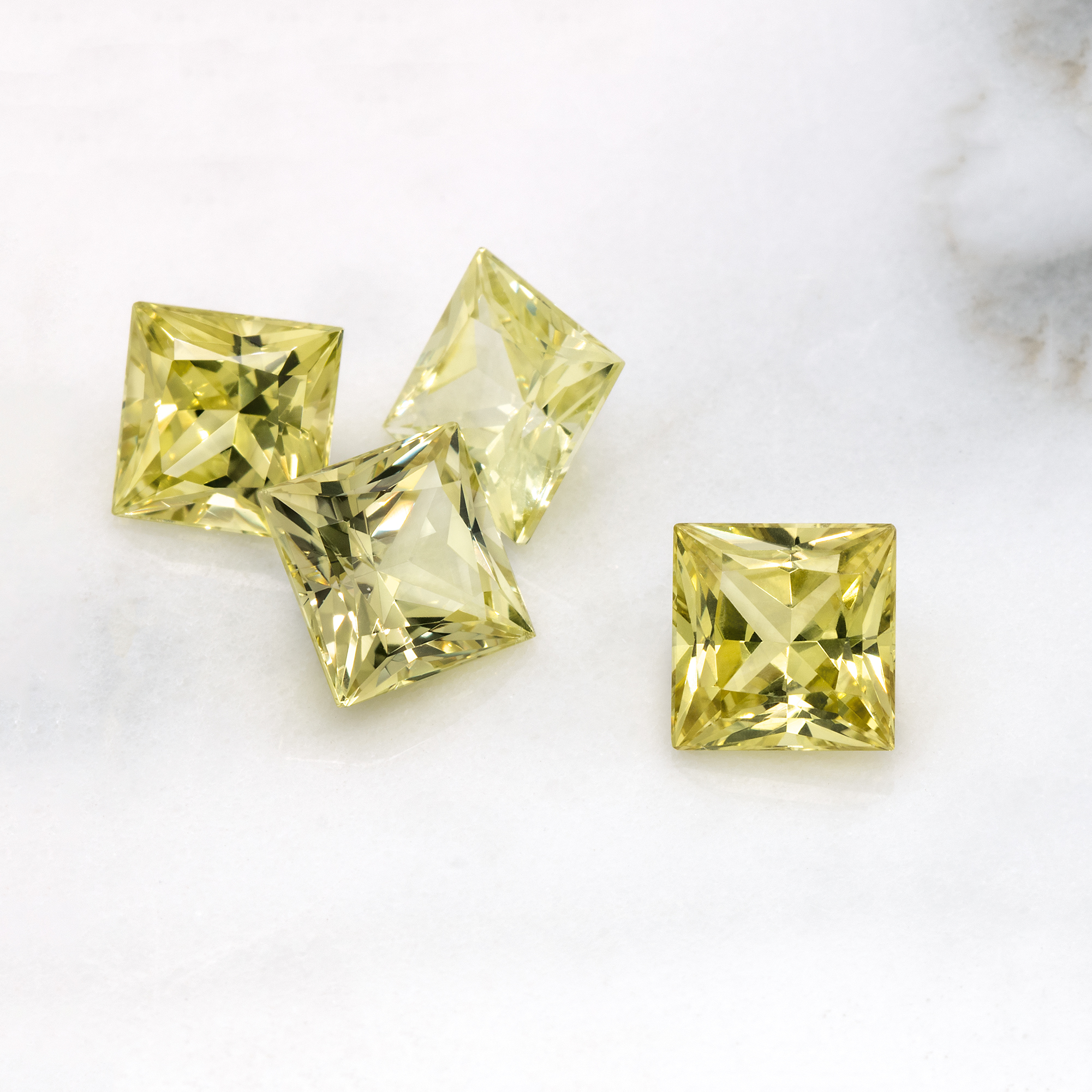
Chrysoberyl
Alexandrite · Cat Eye
The lesser known neon-coloured version of the chrysoberyl is a fascination by itself. The alexandrite changes colour: under natural light it shines green but under artificial light it shines red.
Despite its name, the chrysoberyl does not belong to the beryl group, and is characterised by its high hardness of 8.5. Its radiant brilliance makes it an instant eye-catcher.




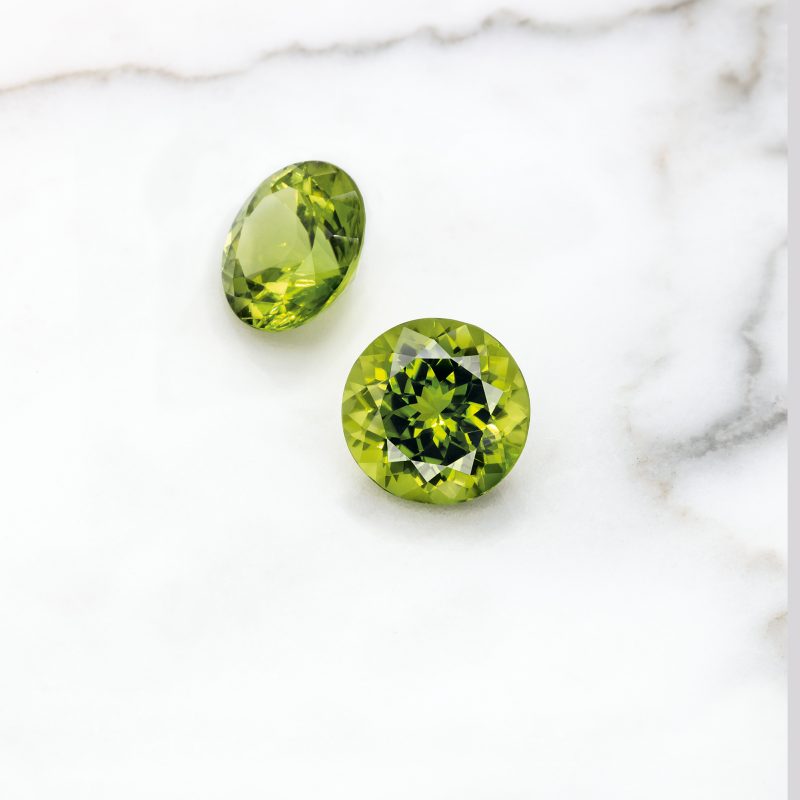
Peridot
One of the few gemstones that only occur naturally in green is peridot.
The extraordinary colouring of the spring stone, which was first found on St. John Island in Egypt, has made it an instant celebrity to this day.




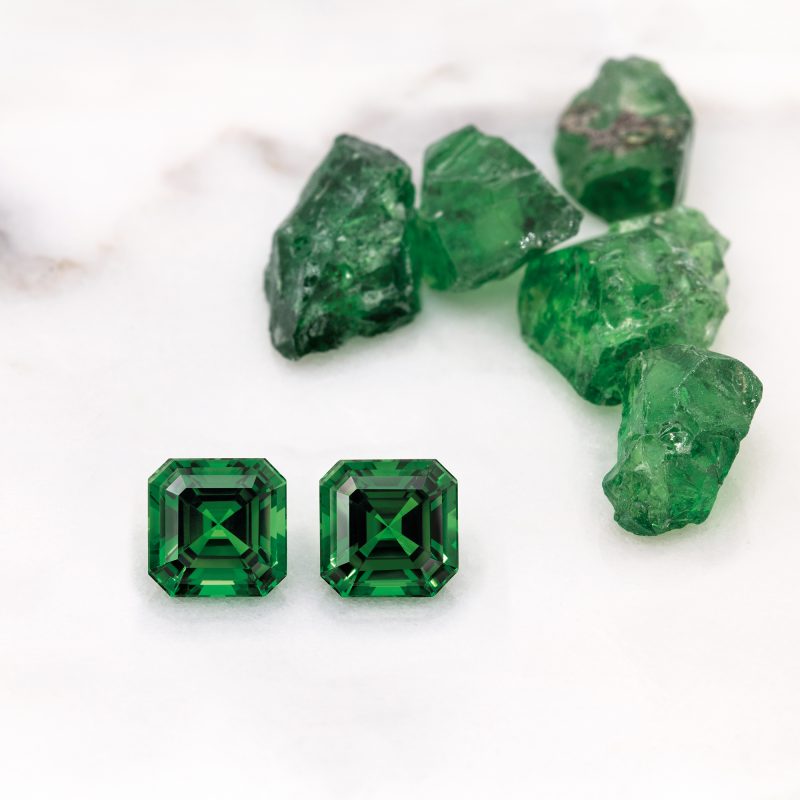
Tsavorite
Tsavorite
Due to its rarity, the price of this gemstone has been rising for years.
The vivid natural green is unique and varies from light green to a strong jungle green, which is particularly sought after. The tsavorite crystals are rather small, but of particular purity and clarity.

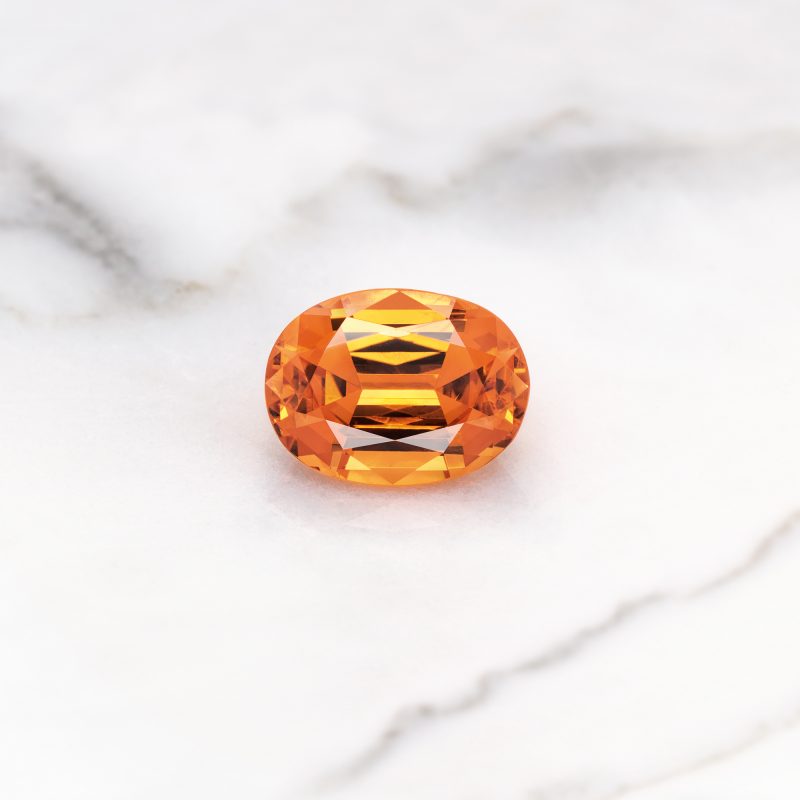
Garnet
Demantoid · Tsavorite · Mali Garnet · Mandarin Garnet · Rhodolite · Red Garnet · Hessonite · Spessartite
The garnet is particularly impressive for its intense, strong and dark colours.
The high light refraction of the gemstone creates an extraordinary brilliance in all colour shades. Hubert Arnoldi was one of the pioneers that introduced the Mandarin garnet to the market.


